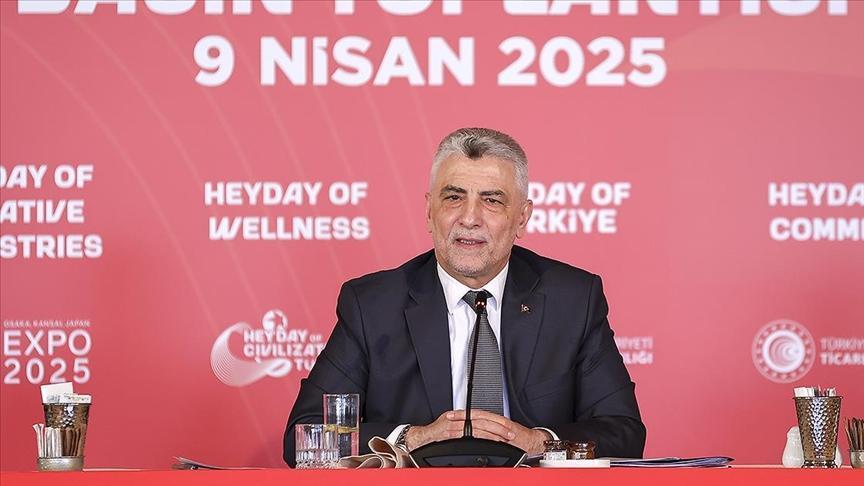
Trade Minister Ömer Bolat has announced that Türkiye is pursuing ambitious targets in the U.S. market, aiming for a mutual trade volume of $100 billion through comprehensive and active policy measures.
Speaking at a press conference in Istanbul, Bolat addressed the U.S.’ recent imposition of additional customs duties and outlined Türkiye’s response strategy.
“There’s significant uncertainty, but our first task is to emerge unscathed. Our second is to seize opportunities to boost exports,” he said, noting collaboration between public and private sectors.
While the U.S.’ 10 percent tariff hike poses challenges, Bolat highlighted a silver lining: Competing nations face steeper rates, giving Türkiye a relative edge.
“We’ve mobilized to create new opportunities in the U.S. market,” he affirmed.
However, he cautioned that countries losing U.S. market access might pivot to Türkiye’s export destinations, necessitating a multifaceted trade diplomacy approach.
“We’ll keep external trade at the forefront,” Bolat reaffirmed.
Bolat highlighted Türkiye’s export-driven growth model, stating, “We’ve built our economic architecture on outward expansion. Regardless of the cost, we’re in a rapid race to boost exports, investment, production, employment and foreign currency earnings.”
Amid intensifying global trade wars, he reaffirmed Türkiye’s commitment to this strategy.
The minister underscored Türkiye’s economic achievements, noting that the country has sustained growth for 18 consecutive quarters — over 4.5 years. Ranking as the world’s 17th largest economy, and 11th by purchasing power parity, Türkiye is intensifying efforts to expand its global footprint.
“We’re chasing bigger goals in the U.S. market,” Bolat said, detailing strategies such as closer ties with Africa, a renewed focus on Asia, outreach to distant nations, and enhanced trade with Islamic countries. He also expressed intent to resolve issues with the European Union’s Customs Union and extend it to the services sector.
Türkiye’s share of global goods exports has more than doubled, Bolat noted, despite a turbulent international trade landscape.
“The world is in chaos, but we’re pushing forward with determination,” he said.
“If we fail to export, a third of our national income vanishes,” he warned.
Bolat pointed to foreign direct investment as a key indicator of Türkiye’s economic appeal. Between 1950 and 2002, the country attracted $14 billion in such investments over 52 years. In contrast, from 2002 to 2024, that figure soared to $276 billion — nearly 20 times higher. Today, 86,500 foreign investors operate in Türkiye, up from just 5,000 before 2002, reflecting robust growth in external economic ties.
Bolat also outlined Türkiye’s preparations for EXPO 2025 in Osaka, Japan, set to begin on April 13.
The six-month event, expected to draw over 25 million visitors, will serve as a global stage for trade, promotion and tourism.
“Türkiye will participate in this, the world’s largest trade and tourism gathering,” Bolat said, emphasizing the importance of showcasing the country as a key economic and commercial power.
At EXPO 2025, Türkiye will present a 900-square-meter pavilion blending its rich cultural heritage with modern design.
“It’s a stand we can all take pride in,” Bolat said, confirming that preparations are complete.
“Expos are vital for displaying our successes in economy, trade, services and technology,” he added.